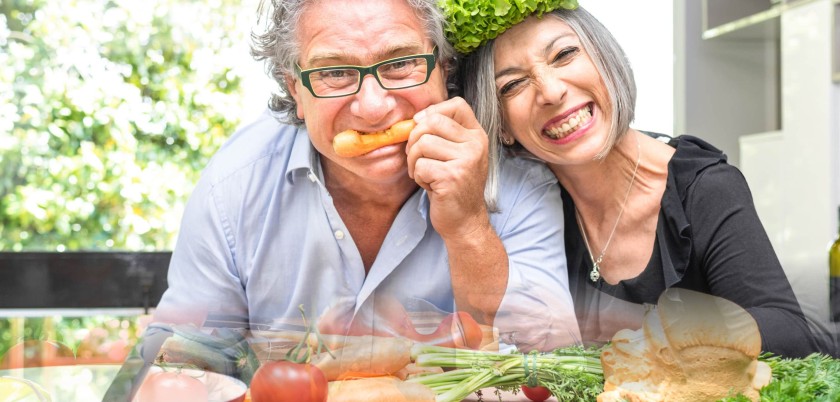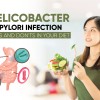
HEALTHY AGEING, BODY’S CHANGE AS YOU AGE !
Successful ageing is defined not by longevity alone but also by sufficient well being in multiple domains-socially, physically and mentally. Old age is best defined as retirement age that is, 60 years and above. Older persons are particularly vulnerable to malnutrition. Basically, problem is that their nutritional requirements are not well defined. Energy requirement decrease with declining metabolism and lean tissue, but on the contrary, requirements for other essential nutrients rises.
Let’s talk about nutrient requirement of elderly
An elderly’s body is not the same as that in adulthood.
✅ENERGY
The metabolism considerably declines due to decreased physical activity and decline in muscle mass. The calorie intake should be adjusted to maintain a constant body weight. As a person ages, energy requirement decreases but requirements of protein, vitamins & minerals do not diminish.
✅CARBOHYDRATES
50% calories should be derived from carbohydrates, mostly complex carbohydrates.
✅PROTEIN
An intake of 1 gm/kg body weight of protein is safe for elderly. Protein needs should be met because there is a considerable decline in skeletal tissue mass.
Since calorie requirements are decreased, without the corresponding decrease in protein, the food should be protein rich compared to normal adult food. 11-12% calories should be obtained from protein.
✅FAT
Reduce the intake of saturated fat, rather choose monounsaturated and polyunsaturated fat sources. Focus on omega-3 fatty acids since they improve vision, prevent hair loss, help in digestion.
✅CALCIUM
Calcium needs increase during old age. As caloric requirement decreases, total food consumption decreases, hence calcium supplements are essential.
✅Some Do’s for the ‘ senior citizens’
Include whole grain cereals and pulses in the diet.
Consumption of omega-3 fatty acids which may help in reducing hair loss, impairment of vision, improper digestion and tissue inflammation.
Include 2-3 servings of low fat milk.
Have clear soup at the beginning of meal to aid digestion.
Small and frequent meals instead of heavy ones.
A glass of milk just before going to bed induces sleep.
If not to disturb sleep, choose heavy lunch meal and light evening meal.
Take plenty of fluids to prevent constipation or dehydration.
Prefer semi-solid foods in case of loss of teeth.
If unable to eat raw vegetables, prefer them in grated form.
High fibre diet including greens and whole grains should be part of daily diet.
A minimum of five servings of fruits and vegetables should be taken.
Consume flax seed (40g/d) to decrease hot flushes in postmenopausal women.
❎Some Don'ts for the ‘ senior citizens’
Control intake of simple sugars-Limit amount of foods high in ‘empty calories’ like biscuits, cakes, savoury snacks (crisps, peanuts), sweets, confectionary. These foods are rich in calories, fat, sugar and salt, so remember – not too much and not too often.
Caffeine containing beverages should be limited, otherwise they may suffer from insomnia
Tobacco chewing, smoking and betel leaves chewing are the habits which may affect consumption of food in elderly, hence should be avoided
Avoid fried and concentrated foods
Food should be less salty and spicy
Gas forming foods like sulphur containing vegetables and certain type of pulses have to be avoided
Limit saturated fats
Restrict consumption of coffee, tea and cola beverages
Avoid empty calories and calorie dense foods
Use less salt too much of it may lead to raised blood pressure.
Avoid the following foods:
Avoid table salt, instead use pepper, lemon juice, herbs and spices to flavour food
Limit intake of processed and canned food
Prepared mixes
Biscuits, cakes, pastries
Frozen peas
Cheese,peanut butter, salted butter
Potato chips (highly salted)
Ketchup and sauce
Baking powder
Ajinomoto
A word on exercise
Combining an active lifestyle with a healthy diet is the best recipe for healthy ageing.
Try to be physically active for at least 30 minutes most days
10-minute sessions are also ok to begin with
If you are currently inactive, 5 minutes of exercise such as walking, gardening, climbing stairs are best to start with
The final word
For elderly, a good diet provides a variety of health benefits,like building stronger bones and teeth, better cognitive function and memory, aiding in digestion issues, and simply keeping all the systems in the body.






